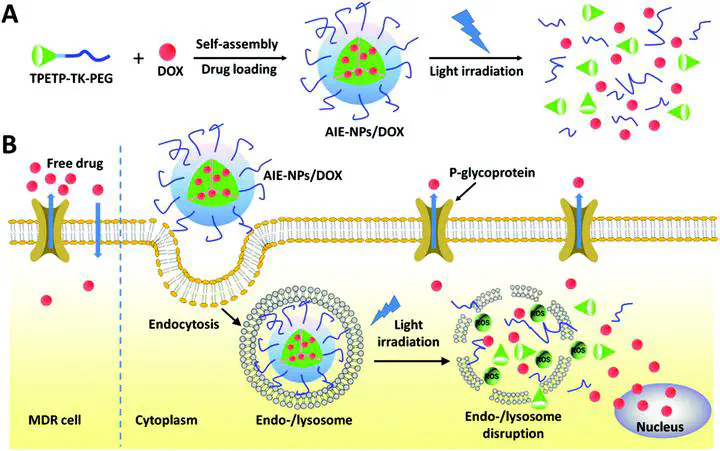Light-responsive AIE nanoparticles with cytosolic drug release to overcome drug resistance in cancer cells

Abstract
The acquisition of resistance to chemotherapy is a major hurdle for successful cancer therapy. Herein, a new light-responsive drug delivery nanoparticle system is developed to overcome doxorubicin (DOX) resistance in breast cancer cells. The nanoparticles with high drug loading capacity are self-assembled from an amphiphilic polymer which is composed of a hydrophobic photosensitizer (PS) with aggregation-induced emission (AIE) characteristics and a biocompatible and hydrophilic poly(ethylene glycol) (PEG) conjugated via a reactive oxygen species (ROS) cleavable thioketal (TK) linker. The AIE PS makes the nanoparticles visible for high-quality imaging and capable of generating ROS upon light irradiation. When exposed to white light irradiation, the ROS generated from the PS could not only induce the endo-lysosomal membrane rupture, but also break the nanoparticles. This results in facilitated endo-lysosomal escape and triggered cytosol release of DOX, which can significantly improve intracellular DOX accumulation and retention in drug resistant MDA-MB-231 breast cancer cells. With light irradiation, the drug loaded nanoparticles can significantly inhibit the growth of DOX-resistant MDA-MB-231 cells. These results reveal that AIEgen based nanoparticles offer a potentially effective approach to overcome drug resistance in cancer cells.